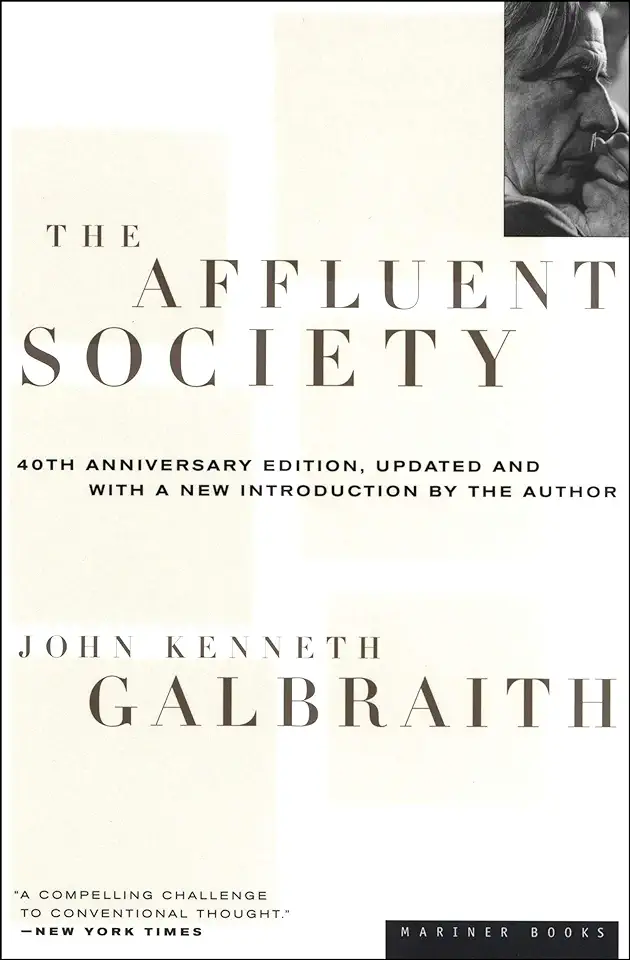
The Affluent Society - John Kenneth Galbraith
The Affluent Society: A Book Review
Introduction
In his seminal work, "The Affluent Society," John Kenneth Galbraith offers a provocative and insightful analysis of the economic and social dynamics of modern society. Galbraith argues that the United States has transitioned from a society focused on production to one characterized by affluence and consumption. This shift has brought about significant changes in the way we live, work, and think about the economy.
The Shift from Production to Affluence
Galbraith begins by tracing the historical evolution of the American economy. He argues that the early 20th century was a period of intense focus on production, driven by the need to meet the demands of a rapidly growing population and industrialization. However, by the mid-20th century, the United States had achieved a level of affluence where the basic needs of the population were largely met. This shift from production to affluence has had profound implications for the structure of the economy and the nature of work.
The Rise of the Service Sector
One of the most significant consequences of the shift to affluence is the rise of the service sector. Galbraith argues that as societies become more affluent, they increasingly shift their focus from producing goods to providing services. This is because as basic needs are met, people are willing to spend more of their income on services that enhance their quality of life, such as education, healthcare, and entertainment.
The Changing Nature of Work
The shift to affluence has also led to changes in the nature of work. Galbraith argues that in a production-oriented economy, work is primarily focused on manual labor and the production of tangible goods. However, in an affluent society, work becomes more varied and specialized, with a greater emphasis on knowledge and creativity. This shift has implications for the education system, the labor market, and the way we think about work-life balance.
The Problem of Private Opulence and Public Squalor
Galbraith also highlights the paradox of private opulence and public squalor that characterizes affluent societies. He argues that while individuals may enjoy a high standard of living, the public sphere often suffers from neglect and underinvestment. This is because the private sector, driven by profit motives, tends to focus on producing goods and services that are profitable, rather than those that are essential for the well-being of society as a whole. As a result, public infrastructure, education, and social services often suffer from inadequate funding.
The Need for Social Balance
Galbraith concludes by arguing for the need for social balance in affluent societies. He proposes a number of policies aimed at addressing the problems of private opulence and public squalor, including progressive taxation, increased public investment, and the strengthening of social safety nets. Galbraith argues that these policies are essential for ensuring that the benefits of affluence are shared more equitably and that society as a whole can thrive.
Conclusion
"The Affluent Society" is a thought-provoking and insightful analysis of the economic and social dynamics of modern society. Galbraith's arguments are supported by a wealth of data and evidence, and he offers a compelling vision for a more just and equitable society. This book is a must-read for anyone interested in understanding the challenges and opportunities of living in an affluent society.
Enjoyed the summary? Discover all the details and take your reading to the next level — [click here to view the book on Amazon!]